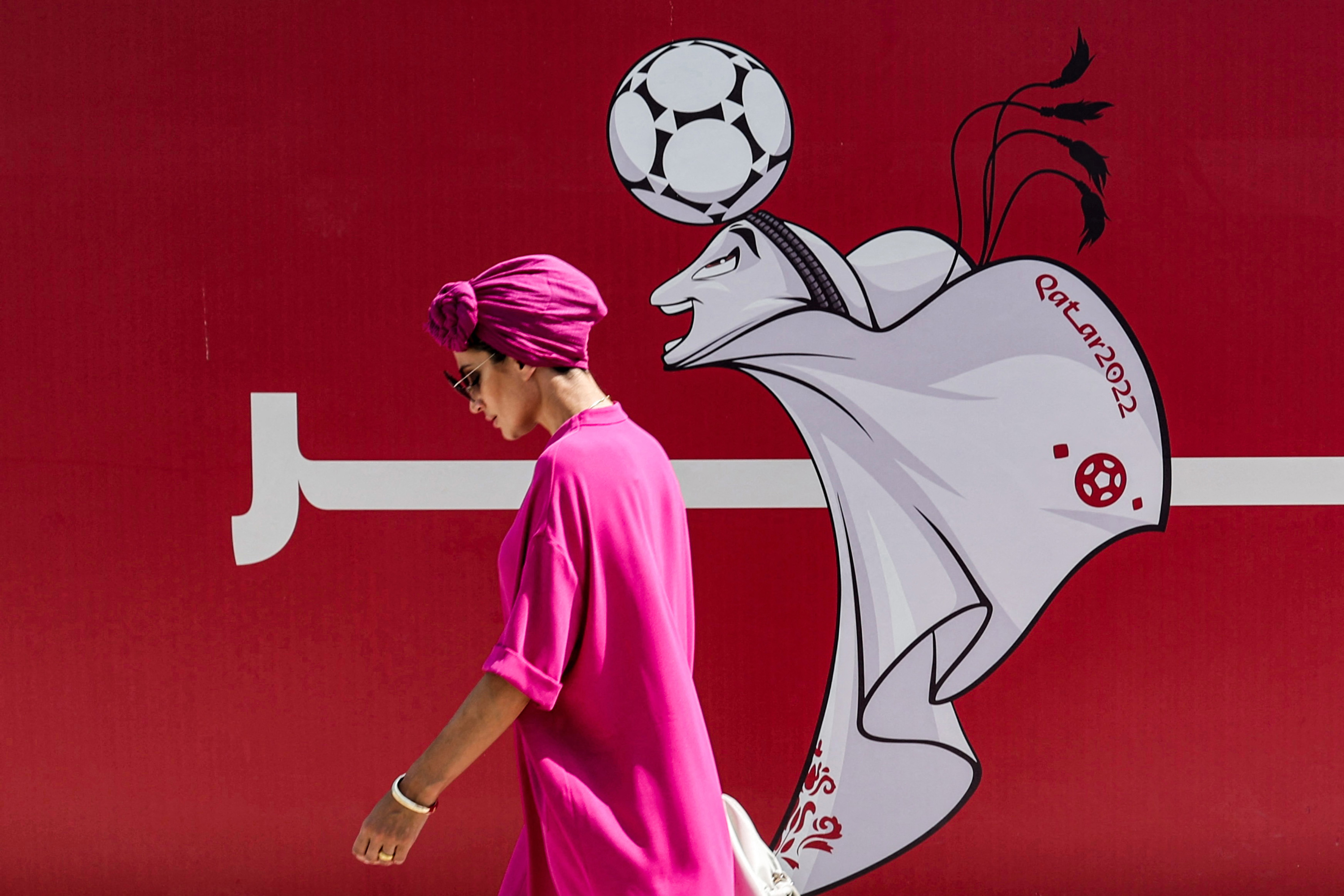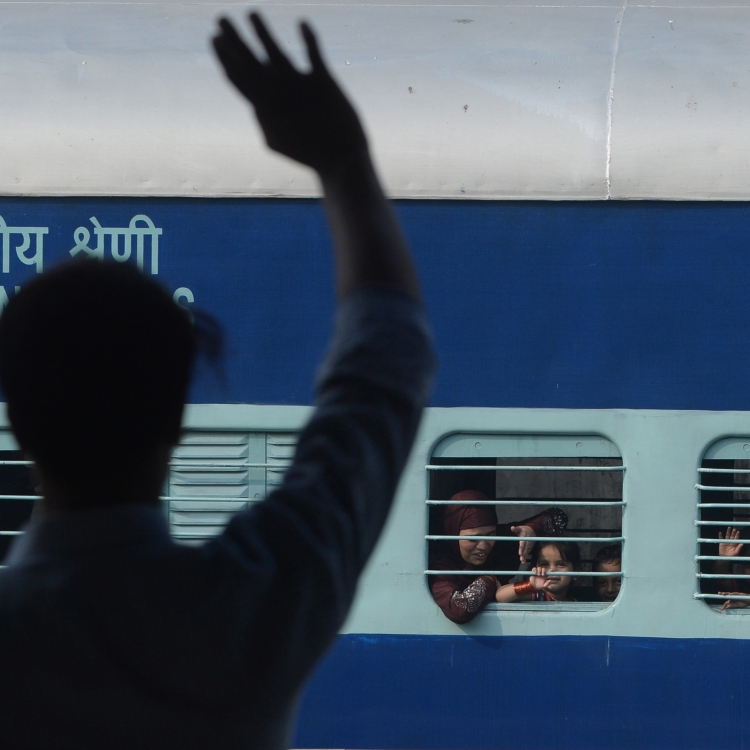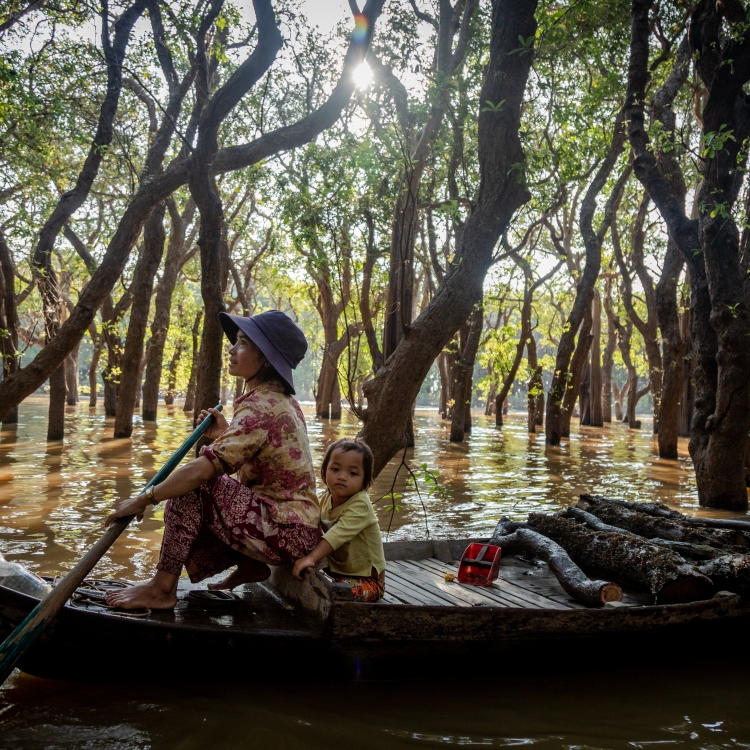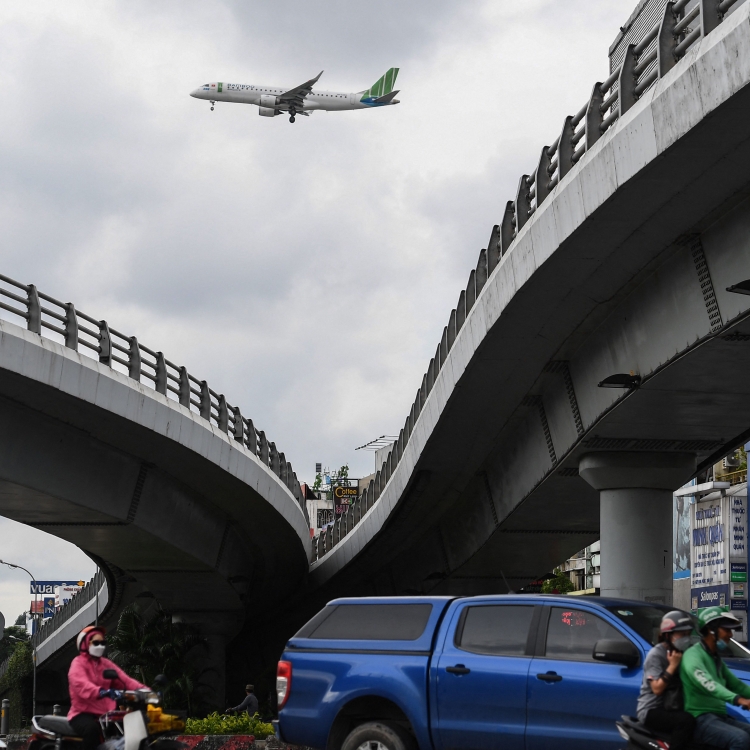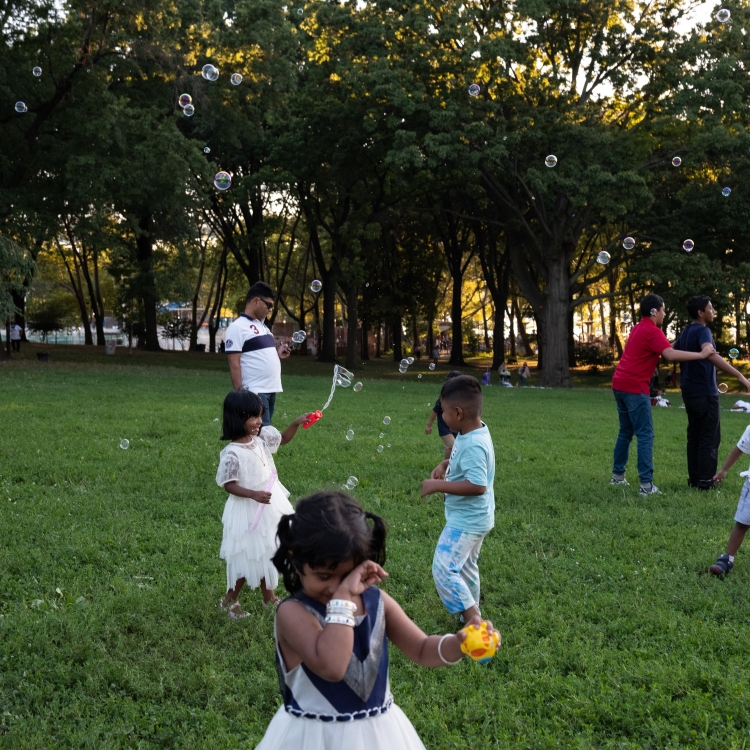magazine text block
I was a student in the UK in 2010 when I first heard about Qatar bidding for the World Cup. I learned about it only the very night the results would be announced. Though I had no interest whatsoever in soccer, all the Qatari girls on campus decided to get together and watch the results online. I remember asking, “Why is this a big deal?” When the results came out, I was happy and excited, but I could not have anticipated how much this event would change the course of my country.
Back in Qatar, there was a great sense of national pride, hope and determination that Qataris would make this the best World Cup ever. That would be no easy task. Qatar — famed for its hot weather, with temperatures that top 122 degrees Fahrenheit during most of the summer — would have to host millions of fans in a country where the local population doesn’t exceed 400,000. Space, transport, and manpower were all limited. Perhaps most challenging of all, we have a very conservative society that takes pride in its values and ways of life.
While I really didn’t care about the event itself, I was excited to see how winning the bid would push — even force — my country to be better.
A year later, Doha established the Supreme Committee for Heritage and Legacy, which managed World Cup affairs. This body was responsible for everything from construction, to operations, to resource management. Every young Qatari wanted to work there.
Since the day of the announcement, I have lived abroad on and off. Every time I came back to my beloved Qatar, Doha seemed to have grown. There were new roads, tunnels and bridges, new skyscrapers stretching into the air, new businesses spread across neighborhoods dotted with new parks and new entertainment centers. But it wasn’t only the infrastructure that was changing. For the first time, I witnessed more open discussions between conservatives and liberals over everything from LGBT rights to alcohol restrictions.
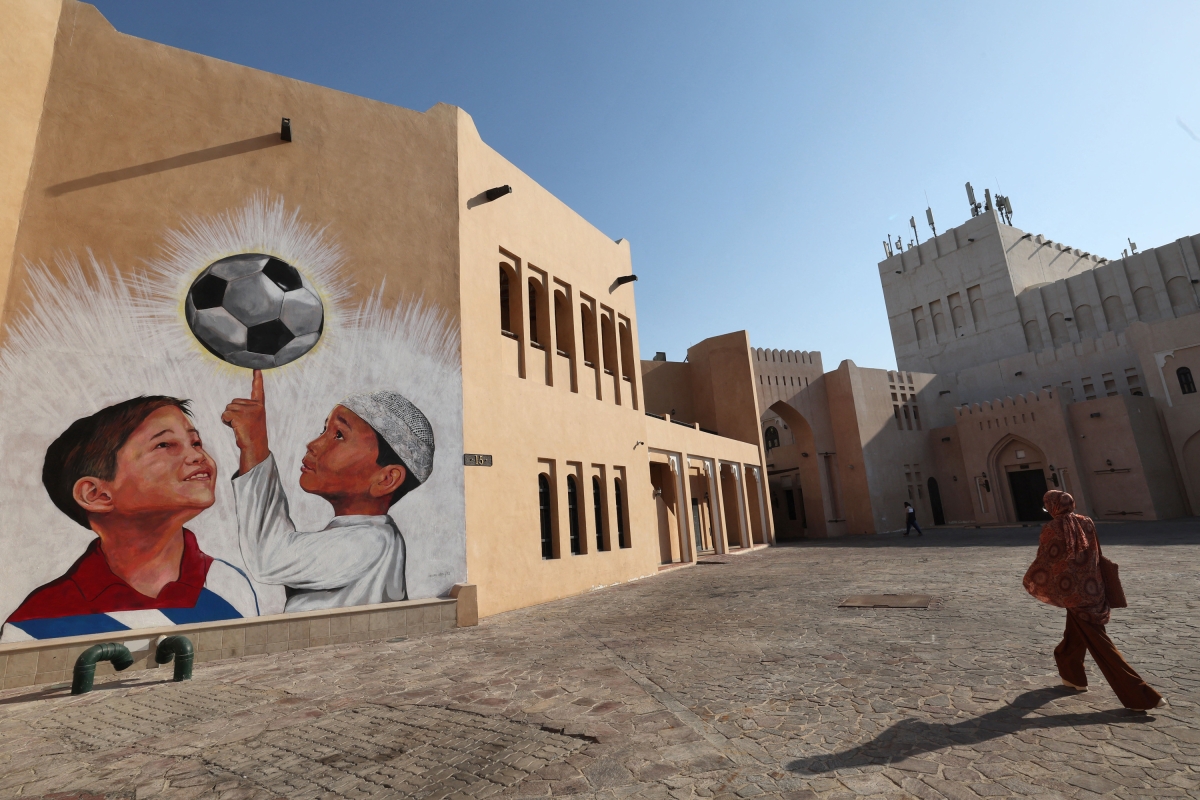
A woman walks past a mural in the Katara Cultural Village in Qatar's capital Doha, on October 11, 2022, ahead of the FIFA 2022 World Cup.
Giuseppe Cacace/AFP/Getty Images
magazine text block
Of course, these did not always result in direct change. This clash of values was seen most concretely when it came to the rights of migrant workers. Ahead of the World Cup, the number of migrant workers swelled to 2 million — building the infrastructure and stadiums, manning the hotels, and working the restaurants. As construction ramped up after Qatar won the bid, there could be no running away from how terrible the situation was. Reports abounded of workers facing violent employers, horrific living conditions, exploitation, and more.
Qatar has long relied on a large migrant worker population, but while such abuses had been flagged by local and international rights groups before, the global spotlight of the World Cup finally forced the government to act.
Slowly, the Supreme Committee started working on this issue, enforcing contractually-binding standards ensuring safety, well-being, and security of all workers engaged in Qatar 2022 projects. Since 2017, a slate of new laws aimed to provide workers better rights and protections have been rolled out. So far there have been more than 4,500 worker health and safety audits and more than 3,500 inspections of construction sites and worker housing. Companies found to be violating the standards were shut down. According to Supreme Committee figures, 81% of workers have reported that their contracts were fully honored — an indication of the improvements in both laws and enforcement.
The situation is still not ideal and far more work needs to be done in terms of human rights — not only for migrant workers but for social justice in general. Will more reforms come about? Or will the signs of change slowly fade away once the final goal is scored and the last remaining fans have returned home? While some Qataris are understandably skeptical, I remain hopeful that Qatar’s emergence on the global stage represents a chance for lasting improvement.
We are now just weeks away from the big event and I am so curious to see how my country will pull it off. I invested in a small motorbike for commuting around Doha during the World Cup to avoid the new traffic. I plan to ride it and observe how Qataris are handling these shifts. I hope to witness a new chapter of change in this desert sprouted nation, where only two generations ago people didn’t have running water and electricity — and now we are hosting the biggest event in the world.
